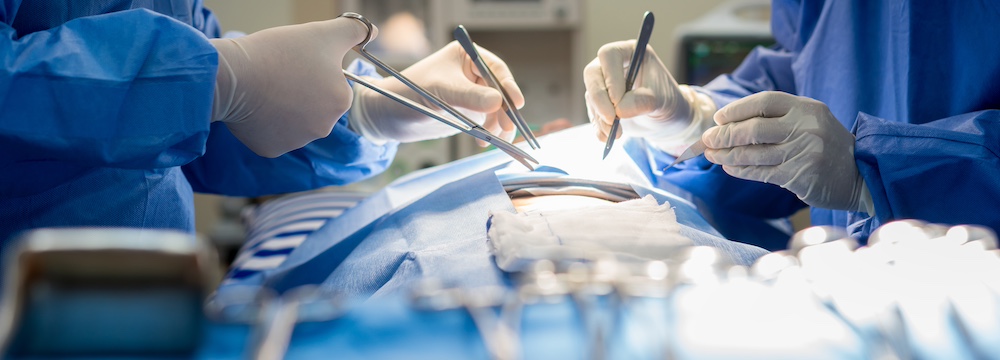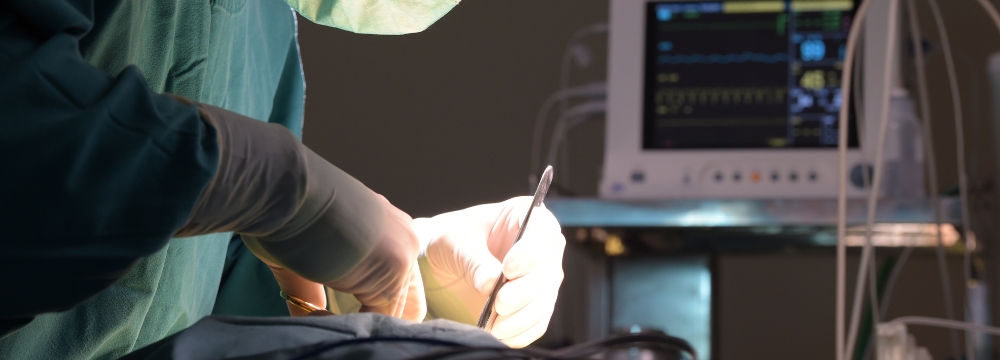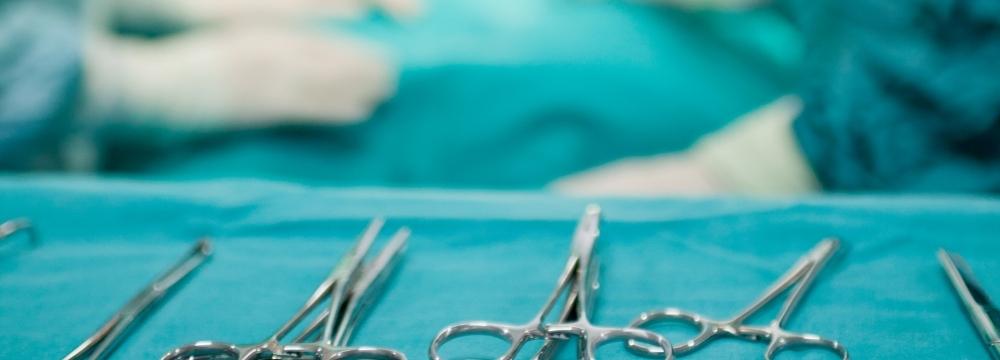Hernia
A recurrent hernia occurs when a defect redevelops in the same area after a surgical hernia repair. Groin (inguinal and femoral) hernias may recur in about 1 to 3 percent of repairs. Abdominal (ventral and incisional hernias) may have up to a 10 to 15 percent chance of recurring. Complex hernia repairs such as the diaphragm and paraesophageal hernias, among others, could range up to a 20 percent recurrence rate. These are broadly accumulated statistics, so consider that multiple factors are involved in hernia occurrences and recurrences. There are various means for patients to be proactive in their risk reduction.
Strengthen Your Tissue (Or Don’t Weaken It)
Although failure is often the way we look at hernia recurrences, it is not necessarily a failure of the actual repair. It can often result from a weakness in adjacent tissue. Mainly when relying heavily on sutures and fixation devices, a hernia repair is only as strong as the health of the tissue surrounding where it has been performed. For that reason, a suture repair alone may create stress on an already-compromised area. Strands suture may pull through deconditioned musculotendinous tissue supporting the repair. Strands may also strangulate these tissues of their vascular supply and degrade progressively from the time of an initially successful repair. Weight gains and losses may induce laxity or expose a prolapse of connective tissue obscured by fat deposits and other structures.
Nutritional Logistics
Patients have control over many hernia repair recurrence risk factors such as obesity, lifestyle habits, and how we are active. Nutrition is essential in providing raw materials to aid in healing and recovery. Surgical repairs rely on collagen proteins to form fibrous scar tissue to reinforce sutures and weave into meshes. Vascular circulation is crucial, functioning as highways or pipelines to expedite reconstruction resources to a wound or repair site and carry away waste and potentially infectious cellular waste. Hydration and cardiovascular activity promote this circulation and neovascularization (formation of tiny blood vessels) necessary for surgical repair.
Don’t Want That Smoke
Smoking and chewing tobacco products are known risk escalators in any disease process primarily related to healing. Furthermore, nicotine-containing effects, including cessation-type gums, patches, and, more notably, the increased use of vape-related products, are just as detrimental to vascular supply because they restrict blood vessels, starving wounds and areas of healing from vital circulation, including oxygen. Any activity, and even inactivity, that decreases blood oxygen could negatively impact wound and repair healing. Oxygen plays a crucial role in vitalizing tissues and oxidizing bacteria, which would otherwise allow potentially catastrophic infections in a mesh repair.
Don’t Weight on It
A common risk factor potentially under a patient’s control and an aggravating factor in almost every disease process, especially in the U.S., is obesity. Many patients are instructed to lose weight to qualify for an elective surgical hernia repair instead of potentially experiencing emergent intervention later, which is almost always less ideal. The literal weight burden of obesity can stretch tissue repairs because scar (a significant component in any hernia repair) does not stretch much. It may even tear away from otherwise healthy tissue. Morbid obesity co-morbidities, including diabetes, and cardiovascular and hypertensive diseases, add further stresses that inhibit recovery from hernia repairs.
Compliance Reliance
The most significant factor in decreasing hernia recurrences is compliance with instructions and restrictions. Even the best hernia surgeons rely on mutual understanding of surgical goals and willing participation in preparation for and recovery from surgery.
To learn more about hernia surgery and how to prevent hernia recurrences, we encourage you to contact our office and schedule a consultation with Dr. Huguet.











